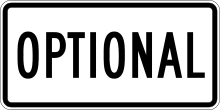
Back ويكيبيديا:دورة الجرأة ثم الاسترجاع ثم النقاش Arabic Viquipèdia:Llanceu-vos-hi, reversió, discussió Catalan ویکیپیدیا:دەستکاری، گەڕاندنەوە، وتووێژ CKB ویکیپدیا:چرخه ویرایش جسورانه، برگرداندن، بحث Persian Wikipédia:Cycle contribution - révocation - discussion French Wikipedia:Siklus suntingan, pengembalian, dan diskusi ID Wikipedia:大胆な編集、差し戻し、議論のサイクル Japanese വിക്കിപീഡിയ:ധൈര്യപൂർവ്വം തിരുത്തുക, മുൻപ്രാപനം ചെയ്യുക, ചർച്ച ചെയ്യുക Malayalam Vikipedi:Cesur ol, geri al, tartış döngüsü Turkish Вікіпедія:Цикл рішучої зміни, відкоту, обговорення Ukrainian
This is an explanatory essay about the Wikipedia:Consensus and Wikipedia:Be bold pages. This page provides additional information about concepts in the page(s) it supplements. This page is not one of Wikipedia's policies or guidelines as it has not been thoroughly vetted by the community. |
| This page in a nutshell: Making bold edits is encouraged, as it will result in either improving an article or stimulating discussion. If your edit gets reverted, do not revert again. Instead, begin a discussion with the person who reverted your change. |

The BOLD, revert, discuss cycle (BRD) is one of many optional strategies that editors may use to seek consensus. This process is not mandated by Wikipedia policy, but it can be useful for identifying objections, keeping discussion moving forward and helping to break deadlocks. In other situations, you may have better success with alternatives to this approach. Care and diplomacy should be exercised. Some editors will see any reversion as a challenge, so be considerate and patient.
Bold editing is a fundamental principle of Wikipedia. All editors are welcome to make positive contributions. It's how new information is added to Wikipedia. When in doubt, edit! Either the edit will get the attention of interested editors, or you will simply improve the page. Either is a good outcome.
Revert an edit if you disagree with it and cannot immediately refine it. If you revert, be specific about your reasons in the edit summary or on the talk page. BRD does not encourage reverting, but recognizes that reversions happen. Revert only when necessary.
Discuss your bold edit with the person who reverted you. To follow BRD specifically, instead of one of the many alternatives, don't restore your bold edit, don't make a different edit to this part of the page, don't engage in back-and-forth reverting, and don't start any of the larger dispute resolution processes. Talk to that one person until the two of you have reached an agreement.
Cycle. To avoid bogging down in discussion, when you have a better understanding of the reverter's concerns, you may attempt a new edit that reasonably addresses some aspect of those concerns. You can try this even if the discussion has not reached an explicit conclusion, but be sure to avoid engaging in any kind of edit warring.
© MMXXIII Rich X Search. We shall prevail. All rights reserved. Rich X Search